
The Indian armed forces operate one of the largest helicopter fleets in South Asia and the Indian armed forces presently operate 38 Helicopter Units (HUs) which comprise Russian-built Mi-17, Mi-17 1V, Mi-17 V5 helicopters, which are the backbone of medium-lift combat capability of IAF in addition to HAL license-built Cheetah and Chetak helicopters and the Dhruv (ALH MK-I, ALH MK-III, ALH MK-IV), along with American-made AH-64E Apaches and Boeing CH-47F Chinooks as the other workhorses. The IAF is presently short of just one HU to meet its sanctioned strength of 39. Helicopters are generally more maintenance intensive and have a Total Technical Life (TTL), that ranges between 5,000 hours to 12,000 hours depending on their age and vintage.
The IAF due to budgetary constraints, ends up operating most of its platforms far beyond that envisaged by the Original Equipment Manufacturer (OEM). Case in point is the obsolescent Cheetah and Chetak helicopters, that continue to fly when they should have been retired by now. The IAF finally ended up retiring its MI-8 ‘Pratap’ helicopters in December 2017, after inducting 107 MI-8s between 1971 – 1988. The MI-8 was inducted in ten operational helicopter units and it operated in several major IAF operations including Operation Meghdoot in the Siachen Glacier and Operation Pawan in Sri Lanka.
Strength in numbers
This story is from the April 2024 edition of Cruising Heights.
Start your 7-day Magzter GOLD free trial to access thousands of curated premium stories, and 9,000+ magazines and newspapers.
Already a subscriber ? Sign In
This story is from the April 2024 edition of Cruising Heights.
Start your 7-day Magzter GOLD free trial to access thousands of curated premium stories, and 9,000+ magazines and newspapers.
Already a subscriber? Sign In
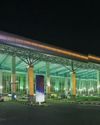
VIDARBHA INDIA'S NEXT AVIATION HUB?
With the modernisation process for Nagpur Airport moving ahead in full steam, Vidarbha, a long-overlooked region in Maharashtra, is gaining momentum as a potential aviation hub with significant infrastructure projects like Air India's aviation academy in Amravati and the ISHAN air traffic management scheme. But what will really give a film to the region is the development of Nagpur airport by the GMR Group, the creation of a second runway and a spanking new terminal.
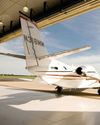
BUSINESS AVIATION INDIA'S MISSED OPPORTUNITY?
India's Missed Opportunity?
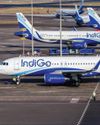
INDIGO'S WET LEASE GAMBLEAN OPPORTUNITY OR A COST RISK?
IndiGo’s reliance on wet-leased aircraft, including six MAX 8 jets, highlights its efforts to tackle grounded planes and expand capacity. While offering flexibility, this approach poses cost and operational challenges, writes AMEYA JOSHI.

LAST-MILE DELIVERY, AI GOES THE DISTANCE
Artificial Intelligence is revolutionising air cargo and last-mile delivery by optimising logistics, reducing costs, and enhancing efficiency. Despite challenges, Al-driven solutions promise transformative growth for the cargo industry, writes R CHANDRAKANTH
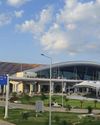
TAMIL NADU'S REGIONAL AVIATION SURGE
Tamil Nadu is set for an aviation boom, with upgrades to key regional airports and plans for new facilities like the Hosur and Parandur airports. These developments aim to enhance connectivity, boost economic growth, and attract trade and tourism across the state, writes RASHEED KAPPAN

POTENTIAL OF ARTIFICIAL INTELLIGENCE IN AIR TRAFFIC MANAGEMENT
Artificial Intelligence promises to transform Air Traffic Management (ATM), improving efficiency, safety, and decision-making. Despite its potential, challenges like regulatory complexities and integration barriers must be addressed, writes DR. S K SARASWATI
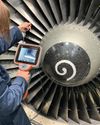
INSIGHTFUL MRO
Predictive maintenance is a clear digital priority for MROs. This transformative approach enhances efficiency, reduces costs, and minimises downtime, addressing evolving challenges in fleet management, writes ATUL CHANDRA

INDIAN AVIATION'S 2025 TAKEOFF
India's aviation sector soared to record-breaking domestic passenger traffic in 2024, highlighting robust growth despite challenges like supply chain disruptions and infrastructure constraints. As 2025 unfolds, transformative fleet expansions, new airports, and regional connectivity initiatives promise unprecedented growth, but questions about profitability and execution remain, analyses AMEYA JOSHI
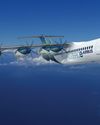
HIGH ON HYDROGEN
Hydrogen fuel presents a transformative opportunity for sus-tainable aviation, offering zero-emission potential. With industry giants like Airbus and Embraer leading advancements, its deployment remains a decade away, observes ATUL CHANDRA

UNTAPPED POTENTIAL OF BUSINESS JETS IN AN ENCOURAGING MARKET
India's business jet market is witnessing growth, fueled by rising UHNWIS and increasing private jet demand. Yet, challenges like high operational costs, inadequate infrastructure, and unclear fractional ownership policies hinder its full potential, explains R. CHANDRAKANTH